Ode to a Friend
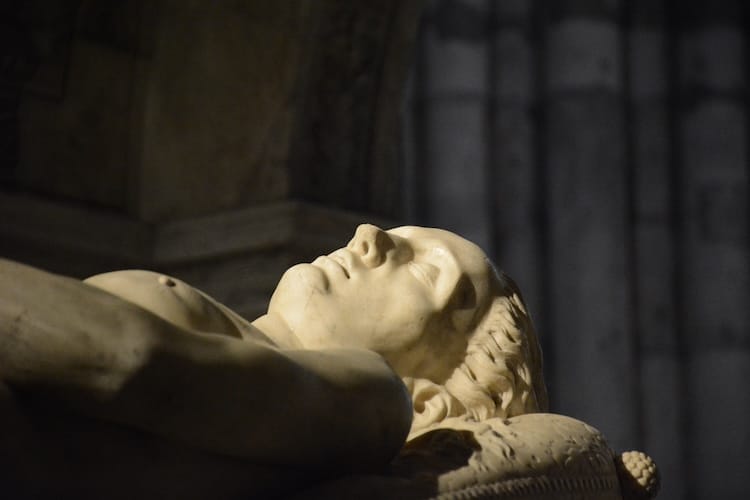
Friday, 20 November
After Charlie Hebdo and the Hypercacher in January, it was a déjà vu: the stunned, shattered hours in front of the television, the feeling that nothing will be the same from now on, the worry that the centre is crumbling right before our eyes. There was even the odd coincidence of returning to Berlin the Sunday following the shootings.
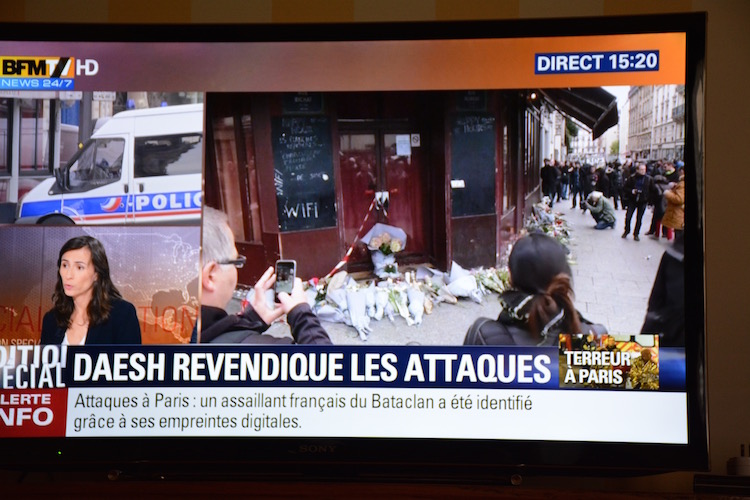
This time, however, the discomfort in leaving Paris was stronger. The amplitude of the attacks was greater, the story closer to home. Even by Saturday it had come into clearer, sharper focus: William had been on the boulevard Voltaire not an hour earlier but 10 minutes; Christopher’s friend had been shot more than once, in both legs, and was undergoing surgery. Her boyfriend Ruter was taking grim solace from the fact she’d been slotted in late morning, rather than rushed onto the operating table first thing.
Getting on that train Sunday morning, I had the feeling of abandoning a dear friend in her hour of need.
Because Paris has been just that: a dear friend, for now well over half my life. At least once in every day I am still struck by her beauty. I continue to marvel at a city that manages to feel both small and big, comforting and challenging. Taken one by one, the quartiers are intimate, familial, but bundled together they create the edgy, electric buzz of a metropolis.
It was — and I hope still is — a great place to raise children. The school was right down the street, as were the judo and chess and dance classes. There was never much need to leave the neighbourhood, except when the small children got bigger, and the city was their oyster. By 11, they were taking the Métro unaccompanied. From 15, they were allowed out on a Friday or Saturday, with later and later curfews. At 16, they could drink legally. As parents we worried less because they couldn’t drive (until 18) and no one had a car anyway.
Even the French education system deserves a pat on the back, a word of thanks. I admit it’s not the fuzziest, cuddliest of institutions, that it’s too rigid and stuck in its ways. But I was gobsmacked by the young witnesses and near victims, products of that system, on the French news last weekend. Despite their state of shock, there was none of the sausage talk in English, where run-on thoughts are so chopped up with likes and you-knows, it’s hard to grasp the meaning in between. Sentences were perfectly composed, thoughts eloquently expressed.

place de la République, after one, before another...
A lot of people have called these attacks, versus those in January, random, but I beg to differ.
There’s another French narrative than my felicitous one. One that plays out in the banlieues, the towns ringing many cities that are heavily populated by immigrants and their children. Though integration has not failed completely — the ethnic mix among the victims in the attacks is proof of that — it has failed enough that a growing number of people my children's age have embraced a terrifying extremism, one with ideals completely antithetical to those they should be learning in the French schools and in their communities. One that leads them to believe that their oyster, unavailable on this earth, can be attained by killing others wantonly, then blowing themselves up.
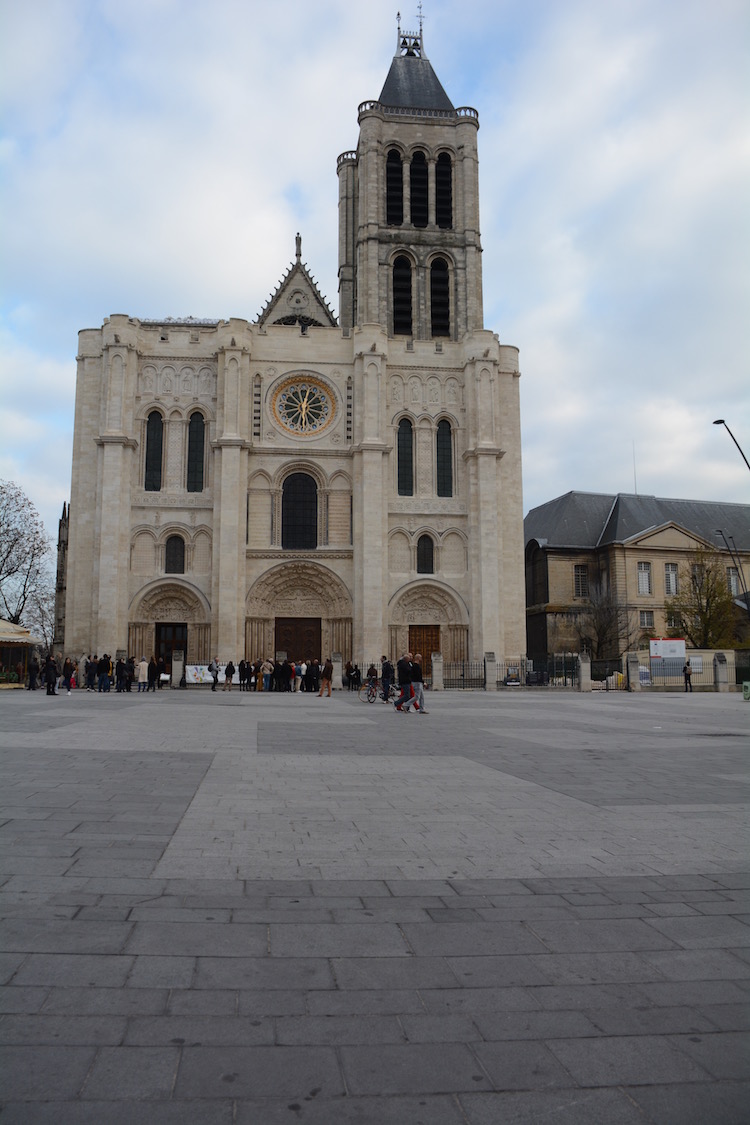
Basilque Saint-Denis, 11 November 2015
In another odd coincidence, on November 11th I visited the Basilique Saint Denis for the first time since 1981. It was partly for my current novel project, partly because I was interested to see how the first Gothic cathedral, burial place of the French kings, was holding up in the reputedly rough banlieue of Saint Denis.
The cathedral was full of tourists but the stone square in front of it was almost empty. Just beyond, however, was a mass of people, making the esplanade seem like a shield or a buffer zone between two worlds. Behind me was a bastion of Christianity and French tradition, the resting place for its dead royalty. Here in front of me was a typical provincial shopping street, except practically everyone milling about or strolling along was from elsewhere, or at least their parents were, and many languages were being spoken, like a Tower of Babel.
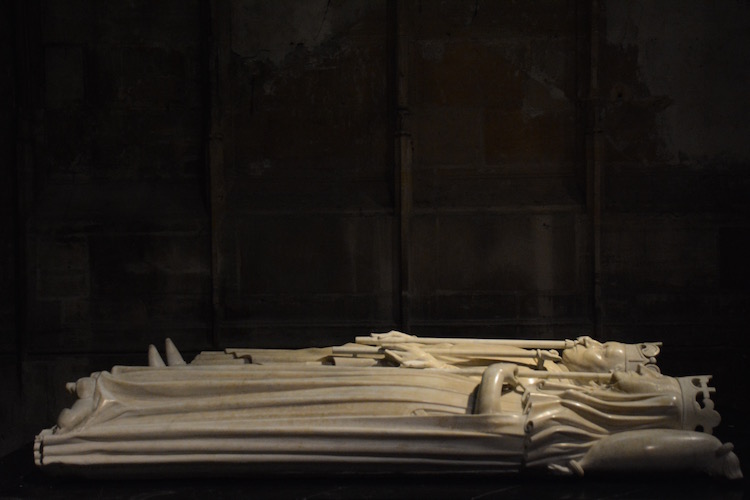
One week later after the attacks, back in Berlin, I turned on the television and there was that dumpy little street, now chock-a-block full of police and security forces who had just shot 5000 rounds at a building around the corner.
Looking down the street on the 11th, I had not imagined terrorists nestled in there, much less the presumed mastermind Abdelhamid Abaaoud and his foot soldiers, perhaps at that very moment loading their Kalashnikovs, mixing the cocktail of explosives that would allow them to self-destruct after killing as many people as possible two days later.
But I have to say, having been there, having felt the atmosphere, I can’t say I am surprised.
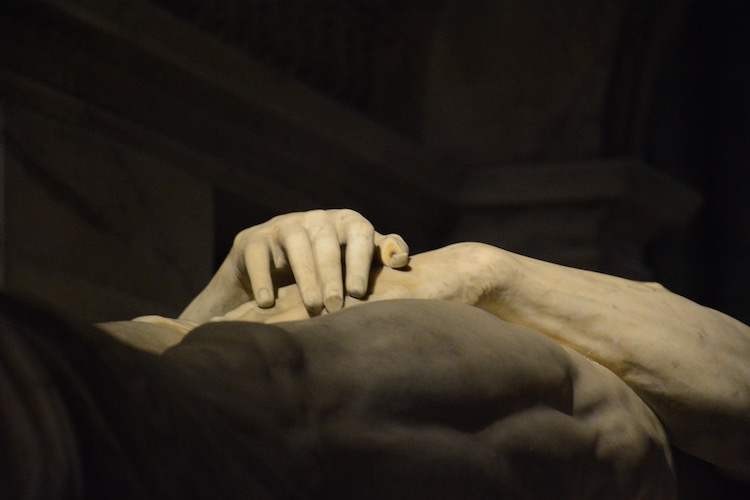
In the tale of the Tower of Babel, that scary, vengeful Old Testament God says: “Come, let Us go down and there confuse their language, that they may not understand one another’s speech.” He does it to make the city, the community, fail.
I hope ours won’t fail, that Paris will stay Paris. But faith in this year 2015 has become hard to muster.